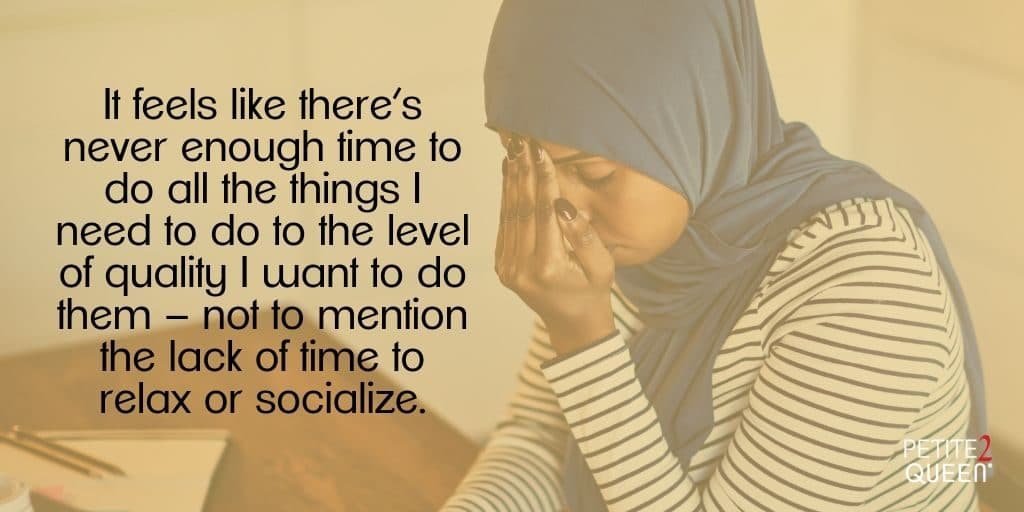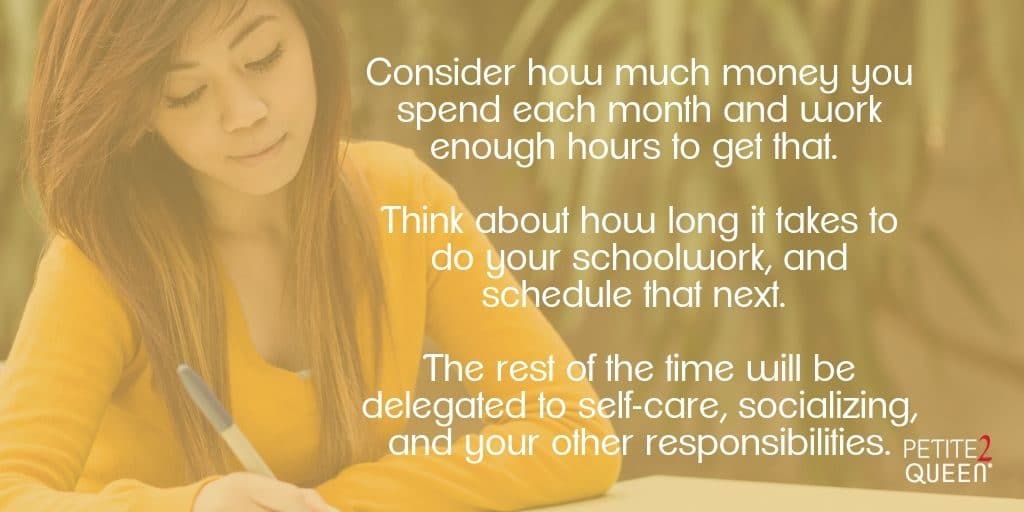My name is Rachel, and I am a working PhD student. As with many (most?) college students, I have to work to financially support myself while I pursue my degree. And like many (probably most) working college students, I constantly feel as though there are not enough hours in a day to do it all (not to mention enough mental energy). Each week is a blur of endless working and studying. Managing both professional and academic careers simultaneously can be overwhelming, but legions of us have done it – are doing it – and you can, too.
A Lot to Juggle
Like many others, I have spent my entire college career working. It has always been a lot to juggle, but working on a PhD while working more hours than I ever did as an undergraduate or master’s student has me at my wit’s end some days. Between trying to write a thesis and trying to pull my full weight at each of my jobs, I feel like I’m always disappointing someone in addition to myself. It feels like there’s never enough time to do all the things I need to do to the level of quality I want to do them – not to mention the lack of time to relax or socialize.
People who are working and studying simultaneously have a lot of responsibilities. If you do both and you’re like me, you might feel like you’re constantly bouncing between work and campus. If you work from home, like I do, work and study can start to bleed into each other so that you end up switching between work and study at rapid cycles, leaving you feeling unfocused.
Conflicting Voices
As a PhD researcher, I have supervisors who guide me in my studies. My supervisors are kind and helpful, but there is a point of contention between myself and my primary supervisor: the amount of time I spend working at my jobs. At every meeting, my primary supervisor tells me that I need to work less so I can spend more time focusing on my research.
It can be frustrating to hear this because, although I know she means well, it glosses over the fact that I work to live. The reason I work while studying is the same reason most people do: to earn money to pay for rent and food while I earn a degree. I work as many hours as I need to cover my expenses. I would love to work less and study more so that I could complete better research in fewer years. There’s also the fact that my jobs require that certain things get done, so even if I could work fewer hours financially, doing so would mean not fulfilling some obligations.
The conflict regarding how time is spent is familiar to anyone who has multiple responsibilities. Not only do you feel overwhelmed by how to delegate time, but the people in different aspects of your life also feel like you owe them your time. Professors expect you to attend lectures and complete assignments, employers expect you to complete tasks and work shifts, and friends and family want to spend time with you. In the end, it can feel like something always ends up being neglected.
Finding Balance
This is the section in which I would normally offer advice on how to find balance in your life, but the truth is that it’s something I haven’t managed to do yet. I have, however, learned a few things that I can share.
- You’ve got to do what you’ve got to do. This is about prioritization. Like most people, I prioritize food and shelter above most other things, so the work that brings an income tends to take a front seat. I work as much as I need to so I can pay for the necessities and have a little left over. On the other hand, I need to continually make progress with my research, so I must dedicate whatever hours I can to that. Consider how much money you spend each month and work enough hours to get that. Think about how long it takes to do your schoolwork, and schedule that next. The rest of the time will be delegated to self-care, socializing, and your other responsibilities.
- Leave time for yourself. You need money to survive, and you need to complete school work to earn your degree. But you also need to take care of yourself. Working and studying simultaneously can quickly lead to burnout, so schedule time to sleep, exercise, and do things you enjoy. Remember that people’s needs vary; I need a lot of downtime to avoid burnout while others are more able to go-go-go. Keep track of what works for you.
- Balance is ever-changing. Most likely, you won’t find a schedule that is going to work for you all the time. Some weeks will be busier at work while other weeks may require more studying due to exams or an approaching deadline. You might run low on fuel and need to prioritize you-time for a few days. Stay adaptable and anticipate life’s ebbs and flows. Obviously, flexibility is a luxury that not everyone has at their jobs, but do your best within your confines. And if your boss is intolerant of your scholarly needs, consider seeking employment elsewhere.
You Can Do It
Working and studying to earn a degree is a lot of hard work, and you can feel like you’re being pulled in a million different directions. Finding balance takes a lot of practice – believe me, this is my sixth year doing it, and I still don’t have it down. Understanding the natural cycles at work, at school, and in your personal and emotional life will help you find a rhythm that works for you. Just remember to continually check in with yourself and adjust things as necessary. It’s a lot of hard work, but remember that you can do it!
Petite2Queen provides virtual mentoring to young women in life, at work, and in sales. Follow us for more practical advice you can put to use to improve your life and career.

Rachel Whitbeck is the Director of Communications & DEI Advisor at Petite2Queen. She has a PhD in Sociology from the University of Limerick in Ireland. Rachel uses her experience in writing, editing, and research to develop content that appeals to and is reflective of the diverse millennial woman.




